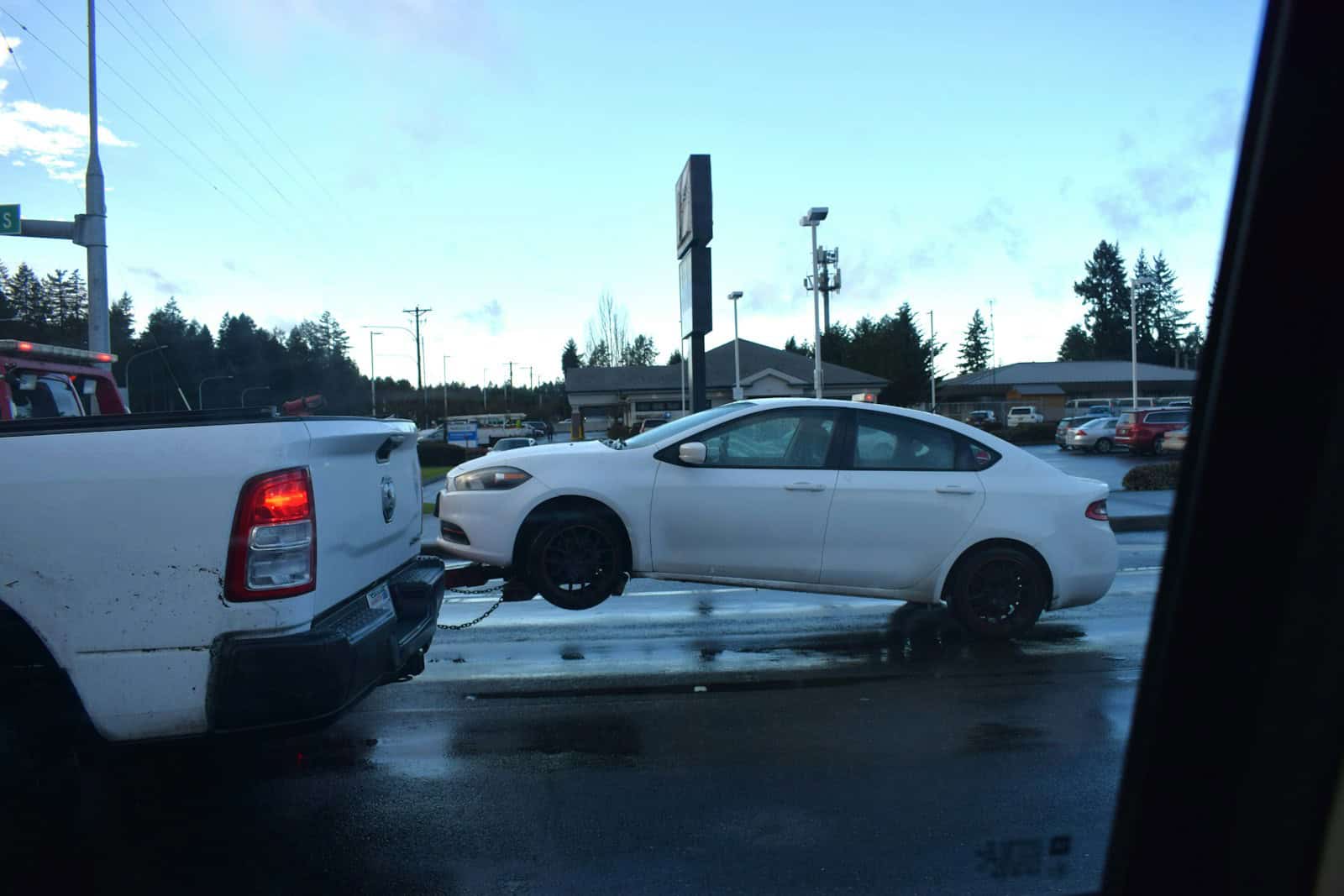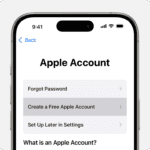Car troubles can strike at any time. When your vehicle breaks down, getting it to a mechanic is crucial. Towing your car to a repair shop is often the safest and most efficient solution. This process may seem daunting, but with the right knowledge, it can be stress-free.
Preparing your vehicle for towing is an important first step. Remove valuable items and secure loose objects. It’s also wise to document any existing damage. Choosing a trustworthy towing service is key to a smooth experience. Look for licensed and insured companies with good reviews.
The cost of towing varies based on distance and location. Basic towing services typically charge $2.50 to $7 per mile. Some auto insurance policies include roadside assistance, which can cover towing expenses. It’s worth checking your coverage before calling a tow truck.
Steps To Tow Your Car To A Mechanic
Getting your car towed to a mechanic can be a stressful situation, but following these steps can help make the process smoother:
1. Ensure Safety First:
- Move to a safe location: If possible, move your vehicle completely off the road to a safe area away from traffic.
- Turn on hazard lights: This will alert other drivers to your presence.
- Stay safe: If you’re on a busy road, it’s generally safest to stay inside your vehicle with your seatbelt on until help arrives. If you must exit, do so on the side away from traffic.
2. Contact Your Mechanic:
- Call your mechanic: Before arranging a tow, call your mechanic to inform them of the situation. This allows them to:
- Confirm they can take your vehicle.
- Give you any specific instructions (e.g., after-hours drop-off, preferred towing companies).
- Potentially provide a preliminary diagnosis based on your description of the issue.
3. Arrange for a Tow:
- Choose a towing service: You have a few options:
- Roadside assistance: If you have roadside assistance through your insurance or a service like AAA, call them first. They often have preferred towing providers and may cover some or all of the cost.
- Mechanic’s recommendation: Your mechanic may have a preferred towing company they work with regularly.
- Independent towing companies: You can find towing companies online or in the phone book. Get quotes from a few different companies to compare prices.
- Provide necessary information: When you call the towing company, be ready to provide:
- Your name and phone number
- Your vehicle’s make, model, and location
- The location you want the vehicle towed to (your mechanic’s shop)
- A description of the vehicle’s condition (e.g., if it’s drivable or has any damage)
4. Prepare Your Vehicle for Towing:
- Gather belongings: Remove any valuables or personal items from your car.
- Unlock the vehicle: Unless otherwise instructed, unlock your car so the tow truck driver can easily access it.
- Release the parking brake: If possible, release the parking brake to make it easier to load the vehicle onto the tow truck.
5. Meet the Tow Truck Driver:
- Confirm identification: Ensure the driver is from the company you called.
- Inspect your vehicle: Before the tow, walk around your vehicle with the driver and note any existing damage. This protects you from being held responsible for damage that was already there.
- Get a receipt: Obtain a receipt from the driver that includes the towing company’s information, your information, and details of the tow (pickup and drop-off locations, cost).
6. Inform Your Mechanic:
- Let your mechanic know the car is on its way: Once the tow truck has picked up your vehicle, call your mechanic to let them know it’s en route.
By following these steps, you can ensure a smoother and less stressful experience when you need to have your car towed to a mechanic.
Key Takeaways
- Properly secure your vehicle and belongings before towing
- Research reputable towing services to ensure a safe experience
- Check your insurance policy for potential towing coverage
Preparing Your Vehicle for Towing
Before your car is towed, you need to take a few steps. These steps will make the process smoother and protect your car.
Assessing the Problem
First, figure out why your car needs towing. Is it a flat tire or did you run out of gas? Maybe you have battery issues or were in a crash. Each problem may need different prep.
For a flat tire, try to pull over to a safe spot. Turn on your hazard lights. If you can’t move the car, stay inside with your seatbelt on.
If you ran out of gas, coast to the shoulder if possible. Turn on your hazards and put the car in park.
For battery issues, don’t try to jump-start it yourself if you’re not sure how. Wait for help to arrive.
After a crash, check for injuries first. Then move the car off the road if you can do so safely.
Gathering Required Documentation
Next, collect important papers. You’ll need these for the tow truck driver and mechanic.
Find your:
- Car registration
- Driver’s license
- Proof of insurance
- AAA card (if you have one)
Keep these items with you, not in the car. The tow truck might take your car to the shop before you get there.
Check if your insurance covers towing. If not, be ready to pay the tow truck driver.
Remove valuable items from your car. Take out any loose objects that could move during towing.
Choosing the Right Towing Service
Picking a good towing service is key when your car breaks down. The right choice can save you time and money. It also keeps your car safe during transport.
Types of Towing Services
Towing companies offer different services to fit various needs. Flatbed towing is common for most cars. It’s safe and works well for low-clearance vehicles.
Hook and chain towing is cheaper but can damage some cars. Wheel-lift towing is a good middle option. It lifts just two wheels off the ground.
Some companies also offer specialized services. These might include:
- Motorcycle towing
- Heavy-duty towing for big trucks
- Off-road recovery
Check if the towing service has the right equipment for your car. This helps avoid damage during the tow.
What to Do in a Towing Emergency
Stay calm if your car breaks down. Pull over to a safe spot if you can. Turn on your hazard lights to alert other drivers.
Call for help right away. You can contact:
- A local towing company
- Your car insurance provider
- A roadside assistance service like AAA
Give clear details about your location. Describe any landmarks nearby. This helps the tow truck find you faster.
While waiting stay in your car with the doors locked. This is safer than standing on the road. Keep your seatbelt on in case another car hits yours.
Have important info ready for the tow truck driver. This includes your car keys insurance card and where you want your car towed.
Frequently Asked Questions
Getting your car towed to a mechanic can be stressful. Here are answers to common questions about the process, costs, and best practices.
What are the steps to have a vehicle towed to a mechanic?
- Call a reputable towing company.
- Give them your location and car details.
- Ask for a price estimate.
- Prepare your car by removing valuables.
- Wait for the tow truck to arrive.
- Give the driver the mechanic’s address.
What options are available for towing a car to a dealership?
- Flatbed tow truck
- Wheel-lift tow truck
- Dollies for front-wheel drive cars
- Self-drive car trailer (if the car still runs)
Are there procedures for towing a vehicle to a mechanic after normal business hours?
Many towing services offer 24/7 assistance. Call ahead to ensure the mechanic has a secure drop-off area. Leave a note with your contact info and car problem on the dashboard.
What are the typical costs associated with towing a car to a mechanic?
Towing costs vary based on distance:
- 5-7 miles: $30 to $100
- 40 miles: $100 to $250
- Up to 100 miles: $275 to $600
Rates average $2.50 to $7 per mile. Extra fees may apply for winching or after-hours service.
How can I arrange for my car to be towed at no charge?
Check if your car insurance includes roadside assistance. Many auto clubs like AAA offer free towing. Some credit card companies provide towing benefits. New cars often come with manufacturer roadside assistance.
What should be communicated to a towing service when requesting a tow for a non-operational vehicle?
Tell the towing service:
- Your exact location
- Car make, model, and color
- Nature of the breakdown
- Where you want the car towed
- Any special equipment needed (e.g., for a lowered car)
Be clear about any damage or issues that might affect towing.







